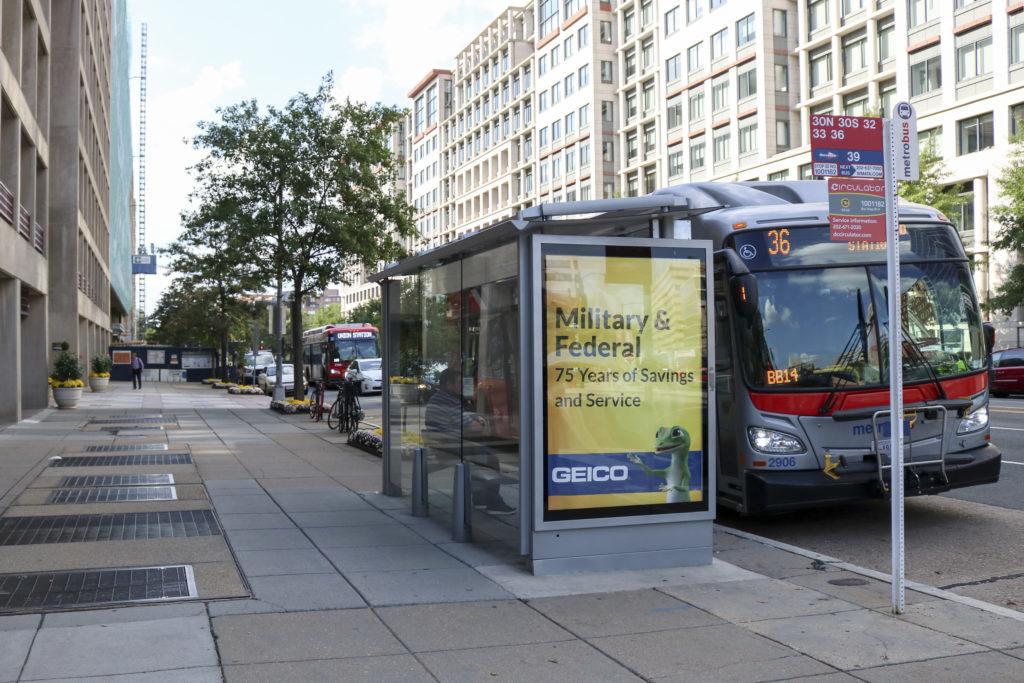Metro will scale back some of its bus and shared-ride services starting Monday in the face of a surge in COVID-19 cases across the District.
Metro officials will reduce bus service to 75 percent of its regular levels, eliminating some bus lines and operating on a Saturday schedule during weekdays, according to a release issued Tuesday. The release states the agency will decrease the number of shared rides and increase accessibility rides on MetroAccess, a paratransit service for people with disabilities who are unable to ride Metrorail or Metrobus.
Officials said they hope the service reductions – which Metro’s Pandemic Task Force approved – will protect transit employees from the recent rise in COVID-19 cases, which has been fueled by the spread of the Omicron variant. Metrorail will continue with the same level of operations, and Metro’s customer service call center employees will also move to remote operations, according to the release.
“Metro’s Pandemic Taskforce is taking swift actions to protect the health and safety of its customers and employees against the recent surge in COVID-19 variants,” the release states. “Due to growing absenteeism rates across service areas related to COVID illness and exposures, Metro is reducing service schedules and implementing new workforce actions.”
The release states Metrobus drivers will be allowed to “bypass” customers not wearing masks for their own health and safety as part of the service changes. Metrobus riders are also encouraged to find an alternative method of transportation, according to the release.
Officials said Metro employees who failed to comply with the agency’s vaccination and testing policies will be put on unpaid suspension starting Jan. 16, and staff who have presented proof of vaccination must submit booster shot information as part of their updated vaccination status by Jan. 31. Metro required its workers to show proof of vaccination or receive weekly COVID-19 tests in August.
The District held the highest average rate of daily COVID-19 cases and hospitalizations in the United States last week after COVID-19 cases surged in December as Omicron’s spread accelerated.
“Metro employees live in some of the neighborhoods hardest hit by the pandemic and are exposed to the surge in the region and throughout the nation,” Paul Wiedefeld, Metro’s general manager and CEO, said in the release. “It’s important that the taskforce take steps to make Metro operationally sound to meet the needs of our customers.”







